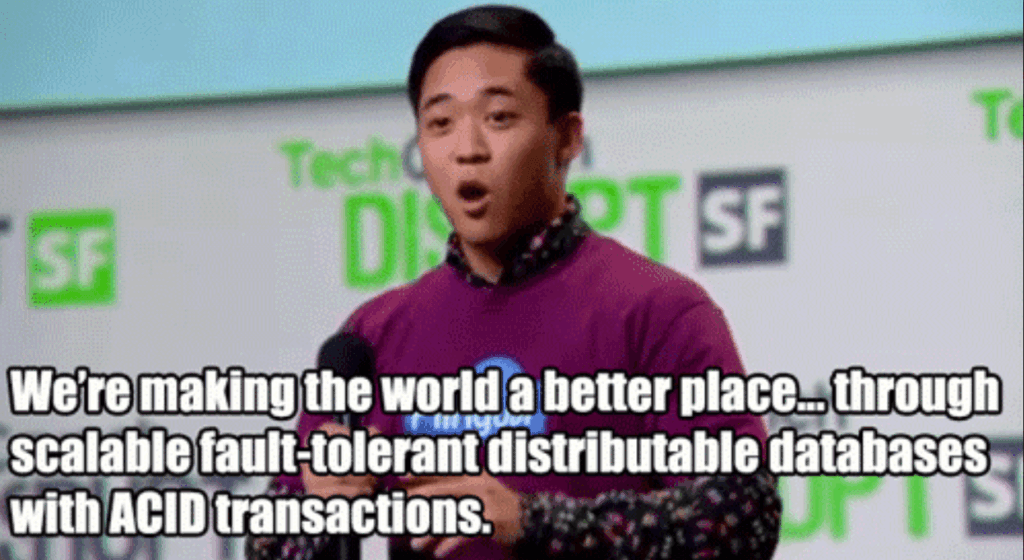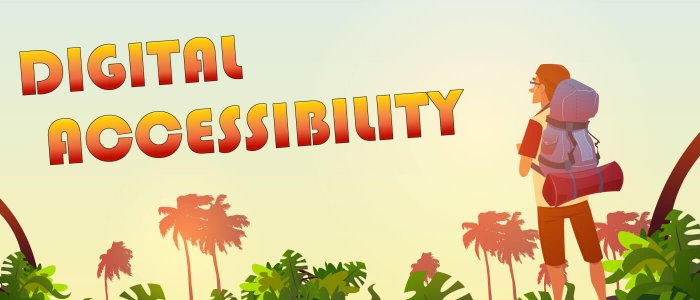Reflecting on 1 year in Digital Accessibility
I can’t believe my first year in accessibility has passed already. I’m certainly no expert but I am a site owner who’s experienced the full range of accessibility emotions. Based on what I’ve observed so far, nothing compares to the passionate, engaging, supportive and collective nature of the digital accessibility industry. If you’ve seen HBO’s Silicon Valley, you know how rare it is to work at a software company that actually helps make the web a better place. Deque is undeniably one of those difference-making unicorns.

I’d like to build an accessibility time capsule. Like any time capsule, I don’t know if what I’m putting in it is correct, or useful or at all representative of what other people would include to properly represent this topic, but I think this will be a healthy exercise. The best part of time capsules is seeing the reaction from others, especially when they have the benefit of hindsight. Let me know what you think as you sort through the elements of this capsule and if you’ve got additional questions and comments that should be included.
The People of Accessibility
The greatest common trait I’ve seen across this industry so far is that the people within it are wildly passionate. I literally have a colleague with accessibility-themed tattoos. Friendships and professional relationships have broken over differences of opinion in interpreting accessibility guidelines. The degree of passion many accessibility practitioners share knows no bounds.
Also unique to this industry, is the curiously broad number of roles involved both simultaneously and separately. Companies practicing accessibility at any level of maturity could have any of the following roles responsible:
- Legal/compliance officers
- Project or Product owners
- QA/testers
- Development
- Designers/UX
- Subject matter experts
When will a pattern of ownership emerge? Is it expected behavior to see Legal as the most common project kick-off? Is it natural that some scattered developers have been secretly dabbling in accessibility already? Why can’t they, or the other non-legal champions on the above list get internal priority and resource? This is a group of passionate people, what’s preventing digital accessibility testing from getting the same attention Security or Performance gets?
The size of the Digital Accessibility industry
To understand the potential of this industry, I’d like to make some comparisons to the Security and Performance monitoring industries. The risk of offering an insecure app is obvious. The effect of a slow (loading…) app is something everyone can relate to. But why isn’t the Accessibility of an app obvious and relatable? The similarities are otherwise extensive. Accessibility, Security and Performance all; carry liability, directly impact users, were evolved from complicated service engagements to integrated toolsets, require programmatic adoption to succeed, and have a similar cost structure. Maybe you’re thinking scale is the difference? Are you really willing to say out loud, that there aren’t enough people with disabilities to justify the testing or inclusive design effort? We do edge-case testing in security, performance, design and hundreds of other industries all the time. Accessibility is not a feature, it’s a requirement.
So, why isn’t Accessibility a $100B+ Security industry? Or even a $6B Performance industry? (at least not yet)
Is it just ignorance and lack of empathy? Or is Accessibility growth subject to orgs waiting until they have no choice but to become accessible? Just like those other industries, the lawsuits are coming. Inevitable aging and disability are a certainty for all user bases. It’s always cheaper and better for your users to fix the problem early and we have the benefit of similar industries blazing the trail already.
The accessibility library Axe-core has been downloaded over 4M times. If that’s any indication of the future of this industry, I’m very excited.
Advice for future accessibility generations
I’m certainly not an accessibility veteran but I do think there is value in sharing my observations from this “sweet-spot.” I’ve been here just long enough to see some true colors, but not so long that my perspectives have been altered. With that said, I’d suggest the following feedback for these common accessibility stewards:
- Legal/compliance officers
- It’s cheaper to fix the problem. Get proactive about protecting your employer or client, ask your web or app owner if they’ve had an accessibility audit.
- Project or Product owners
- Build empathy amongst your peers and leadership. With empathy comes understanding, priority and budget.
- Development/QA/testers
- File bugs. Build on easy wins and stack them high enough to buy automated tools and manual testing expertise.
- Designers/UX
- Design for everyone. Take your mobile-first mentality, inject it with steroids and apply accessibility best practices.
- Subject matter experts
- Understand the balance of priority. Be pragmatic. Clearly identify accessibility blockers. Understand that your personal favorite best practice may not be the only way to design an accessible experience.
Other fun observations
- People in the accessibility industry like puns more than any I’ve ever seen.
- Listening to folks pronounce WCAG (wuh-cag, w.c.a.g., w-cag) is fun.
- Accessibility vets will write a 1,000 word explanation on proper form markup but won’t take the time to include the 11 other letters in accessibility. #a11y
- Accessible components are solid gold.
I love my time spent in accessibility so far. Here’s to an accessible future! Let’s all check back in next year to see what progress we’ve made.
